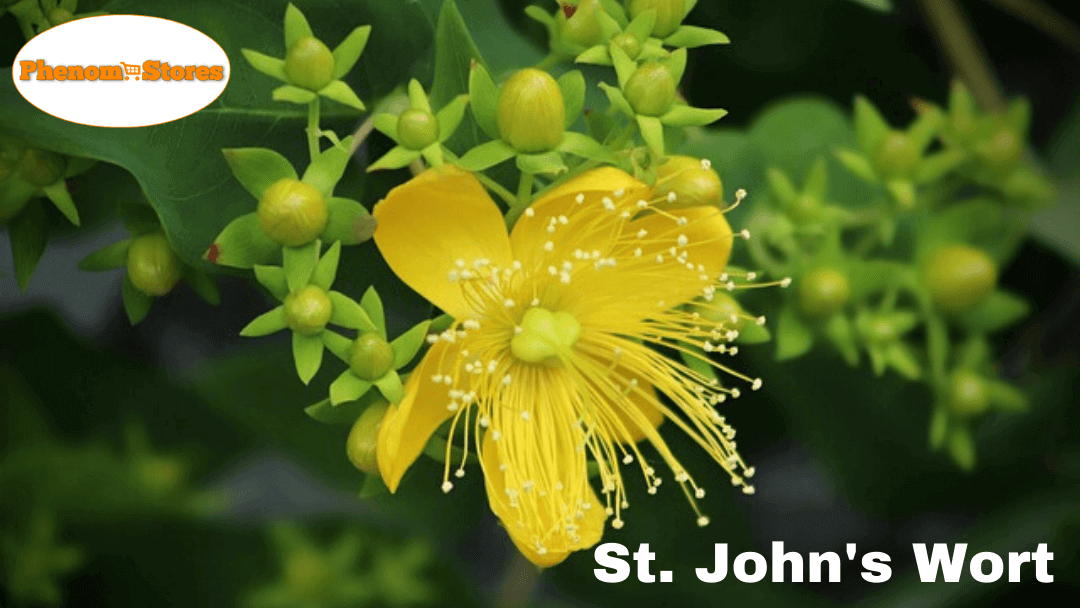St. John's Wort and Depression: What You Need To Know

About St. John’s Wort
- St. John’s wort (Hypericum perforatum), a plant that grows in the wild, has been used for centuries for mental health conditions. It’s widely prescribed for depression in Europe.
- St. John’s wort is sold as a dietary supplement in the United States, where the standards for selling supplements are less strict than the standards for prescription or over-the-counter drugs.
How much do we know about St. John’s wort for depression?
- We know a fair amount about the short-term effects of St. John’s wort on depression but less about its long-term effects.
What do we know about the effectiveness of St. John’s wort for depression?
- St. John’s wort isn’t consistently effective for depression. Do not use it to replace conventional care or to postpone seeing your health care provider.
What do we know about the safety of St. John’s wort for depression?
- St. John’s wort limits the effectiveness of many prescription medicines.
- Combining St. John’s wort and certain antidepressants can lead to a potentially life-threatening increase in your body’s levels of serotonin, a chemical produced by nerve cells.
- Don’t try to treat depression on your own. Depression can become severe if you don’t get effective, professional help. For some people, depression can increase the risk of suicide. Talk to your health care provider if you or someone you know may be depressed.

About Depression
Depression (major depressive disorder or clinical depression) is a common but serious mood disorder. It causes severe symptoms that affect how you feel, think, and handle daily activities, such as sleeping, eating, or working. In 2015, almost 7 percent of U.S. adults had at least one episode of major depression in the past year. Symptoms of depression vary but can include
- Feeling sad or anxious often or all the time
- Not wanting to do activities that used to be fun
- Feeling irritable‚ easily frustrated‚ or restless
- Having problems with sleep and feeling tired
- Eating more or less than usual or having no appetite
- Experiencing pain that doesn’t improve with treatment
- Having trouble concentrating, remembering details, or making decisions
- Feeling guilty, worthless, or helpless
- Thinking about suicide or hurting yourself.
Antidepressants and certain types of psychotherapy help treat depression.
What the Science Says About the Effectiveness of St. John’s Wort for Depression
The results of studies on the effectiveness of St. John’s wort for depression are mixed.
- In a 12-week, 2011 clinical trial with 73 participants, neither St. John’s wort nor a standard antidepressant medication called citalopram, a selective serotonin reuptake inhibitor (SSRI), decreased symptoms of minor depression better than a placebo. The study was funded by NCCIH and NIMH.
- In a 26-week clinical trial with 124 participants, St. John’s wort, a standard antidepressant (sertraline, an SSRI), and a placebo were similarly effective in treating major depression of moderate severity. NCCIH and NIMH funded this 2012 analysis of data collected in 2002.
- A 2008 review of 29 international studies suggested that St. John’s wort may be better than a placebo and as effective as different standard prescription antidepressants for major depression of mild to moderate severity. St. John’s wort also appeared to have fewer side effects than standard antidepressants. The studies conducted in German-speaking countries—where St. John’s wort has a long history of use by medical professionals—reported more positive results than those done in other countries, including the United States.
- St. John’s wort was no more effective than placebo in treating major depression of moderate severity, an NCCIH- and NIMH-funded study of 340 participants reported in 2002.
What the Science Says About the Safety and Side Effects of St. John’s Wort for Depression
- Combining St. John’s wort with certain antidepressants can lead to a potentially life-threatening increase of serotonin, a brain chemical targeted by antidepressants. Symptoms occur within minutes to hours, and may include agitation, diarrhea, fast heartbeat, high blood pressure, hallucinations, increased body temperature, and more.
- There are case reports of St. John’s wort having dangerous side effects, such as worsening of psychotic symptoms in people with bipolar disorder or schizophrenia.
- Taking St. John’s wort can weaken many prescription medicines, such as:
- Antidepressants
- Birth control pills
- Cyclosporine, used to prevent the body from rejecting transplanted organs
- Digoxin, a heart medication
- Oxycodone, a pain medicine
- Some HIV drugs, including indinavir
- Some cancer medications, including irinotecan
- Warfarin, an anticoagulant (blood thinner).
- Other side effects of St. John’s wort are usually minor and uncommon. They may include upset stomach, dry mouth, headache, fatigue, dizziness, confusion, sexual dysfunction, or sensitivity to sunlight. Also, St. John’s wort is a stimulant and may worsen feelings of anxiety in some people.
More to Consider
- Depression can be a serious illness and lead to an increased risk of suicide. If you or someone you know may have depression, talk to a health care provider. Don’t try to treat depression on your own.
- Do not use St. John’s wort to replace conventional care or to postpone seeing a health care provider about a mental health problem.
- Dietary supplements can cause medical problems if you use them incorrectly or in large amounts. Some may interact with medications you take. Your health care provider can advise you.
- Many dietary supplements haven’t been tested in pregnant women, nursing mothers, or children. We have little safety information on St. John’s wort for pregnant women or children. Talk with health care providers if you’re pregnant or nursing or are considering giving a dietary supplement to a child.
- Take charge of your health—talk with your health care providers about any complementary health approaches you use. Together, you can make shared, well-informed decisions.
Key References
- De Smet PA. Herbal remedies. New England Journal of Medicine. 2002;347(25):2046–2056.
- Hypericum Depression Trial Study Group. Effect of Hypericum perforatum (St. John’s wort) in major depressive disorder: a randomized controlled trial. JAMA. 2002;287(14):1807-1814.
- Lakhan SE, Vieira KF. Nutritional and herbal supplements for anxiety and anxiety-related disorders: systematic review. Nutrition Journal. 2010;9:42.
- Larzelere MM, Campbell JS, Robertson M. Complementary and alternative medicine usage for behavioral health indications. Primary Care. 2010;37(2):213–236.
- Linde K. St. John’s wort—an overview. Forschende Komplementärmedizin. 2009;16(3):146–155.
- Linde K, Berner MM, Kriston L. St. John’s wort for major depression. Cochrane Database of Systematic Reviews. 2009;(4):CD000448. Accessed at www.cochranelibrary.com(link is external) on March 28, 2017.
- National Institute of Mental Health. Depression. What You Need To Know. National Institute of Mental Health Web site. Accessed at https://www.nimh.nih.gov/health/publications/depression-what-you-need-to-know/index.shtml on November 30, 2017.
- Nieminen TH, Hagelberg NM, Saari TI, et al. St John’s wort greatly reduces the concentrations of oral oxycodone. European Journal of Pain. 2010;14(8):854-859.
- Rapaport MH, Nierenberg AA, Howland R, et al. The treatment of minor depression with St. John’s wort or citalopram: failure to show benefit over placebo. Journal of Psychiatric Research. 2011;45(7):931-941.
- Sarris J, Fava M, Schweitzer I, et al. St. John’s wort (Hypericum perforatum) versus sertraline and placebo in major depressive disorder: continuation data from a 26-week RCT. Pharmacopsychiatry. 2012;45(7):275-278.
NCCIH Pub No.: D005
Recent Posts
-
51% Off - MRS. MEYER'S CLEAN DAY Hand Soap, Snowdrop, 12.5 fl. Oz (Pack of 3)
SPECIAL OFFER: 51% Off - MRS. MEYER'S CLEAN DAY Hand Soap, Snowdrop, 12.5 fl. Oz (Pack of 3) Shop h …Nov 27th 2025 -
41% Off - think! Protein Bars, High Protein Snacks 12 Count
SPECIAL OFFER: 41% Off - think! Protein Bars, High Protein Snacks 12 Count Shop here. 41% Off - $16 …Nov 27th 2025 -
46% Off - Smart Tart Toaster Pastries - No Artificial Colors or Flavors, 70% Less Sugar
SPECIAL OFFER: 46% Off - Smart Tart Toaster Pastries - No Artificial Colors or Flavors, 70% Less Su …Nov 25th 2025
